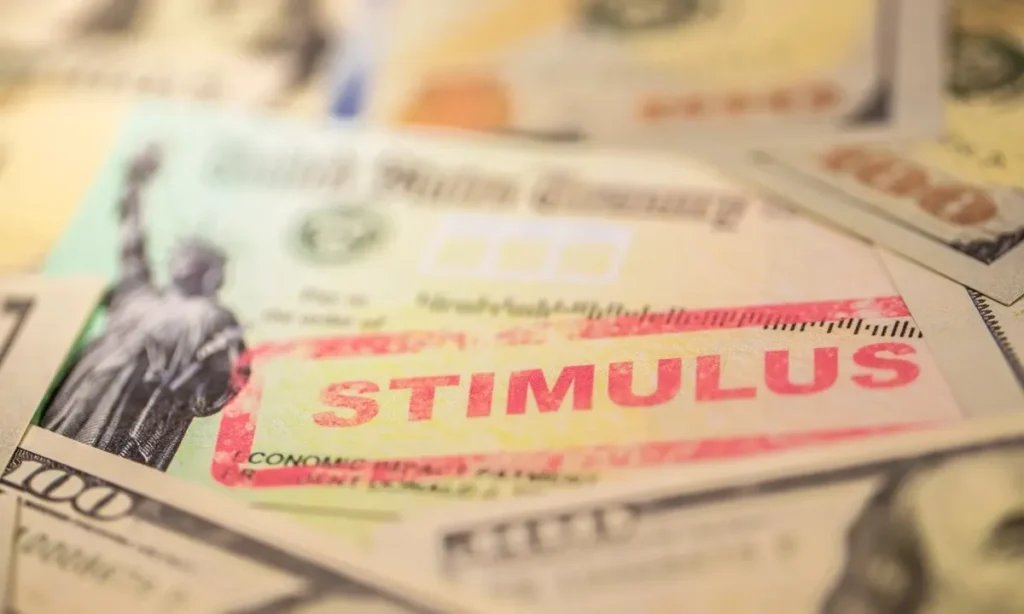Scammers across the U.S. are stepping up their game in 2025 and this time, they’re using fake checks, phishing texts, and even AI-generated voices to trick people into giving up their money or personal details. As talk grows about possible new government relief programs, fraudsters are jumping at the chance to fool households waiting for financial help. These scams are so convincing that even careful people have been caught off guard. Here’s how to spot the red flags and keep your information safe.
Table of Contents
Why Stimulus Scams Are Skyrocketing This Year
Every time there’s a rumor or announcement about government payments, scammers move fast. They know people are eager for good news and may not double-check messages that sound official. According to the IRS, no government agency will ever email, text, or call you out of the blue about stimulus payments. Real payments are processed automatically you don’t have to “apply,” “verify,” or pay any fee to receive them.
But that hasn’t stopped criminals. Many are using stolen personal data and artificial intelligence to send messages that look and sound real. Some even copy official IRS letterheads or use AI-generated voices that perfectly mimic government employees. With so many convincing details, it’s easy to see how people fall for these scams especially those who are waiting for financial relief.
The IRS “Dirty Dozen” scam list for 2025 includes several stimulus-related frauds, warning that con artists often appear most active when public confusion is at its highest. Fraudulent websites, social media ads, and robocalls are becoming increasingly difficult to distinguish from legitimate government communication.
The Most Common Stimulus Scams to Watch Out for in 2025
| Scam Type | How It Works | What to Look Out For |
|---|---|---|
| Phishing Texts and Emails | You get a text or email saying your stimulus payment is approved and you must click a link to claim it. The link leads to a fake site that steals your info. | Messages with links not ending in “.gov” or asking for banking details. |
| Fake Checks in the Mail | A check arrives that looks real, but after you deposit it, scammers ask you to return an “overpayment.” The check later bounces, and you lose your money. | Any unexpected check or one asking you to send money back. |
| AI Voice Calls | You get a call from someone who sounds like an IRS officer or even a family member, demanding quick action to secure your payment. | Calls that sound urgent, emotional, or request sensitive information. |
| Social Media Relief Ads | Sponsored posts on Facebook, Instagram, or TikTok claim you can get “instant stimulus cash.” Clicking takes you to a fake site. | Ads promising money or early access to “stimulus” funds. |
| Advance-Fee Scams | Someone claims they can “fast-track” your payment for a small processing fee, often through gift cards or crypto. | Any request for a fee to release or speed up payment. |
These scams are not only getting smarter they’re getting richer. The Federal Trade Commission (FTC) reported that text scams alone cost Americans nearly $470 million in 2024, and those numbers are rising sharply in 2025.
How Scammers Use AI to Make Frauds More Believable

Scammers are now blending new technology with old tricks. Artificial intelligence lets them create deepfake voices and even realistic video calls that imitate government officials, news anchors, or relatives. Some victims have reported receiving calls that sounded exactly like a loved one asking for help with a “stimulus issue.” The mix of stolen personal information from data breaches and AI-powered scams means fraudsters can make their messages feel disturbingly real. An email might greet you by name, include your address, and link to what looks like an official IRS page but it’s all a setup to steal your identity or drain your account.
The FTC has warned consumers that fraudsters now use machine learning to generate personalized scam messages at scale, making it harder to tell real from fake. This new wave of digital deception demands that everyone double-check any message involving money, benefits, or government programs.
Spotting the Red Flags Before It’s Too Late
If you receive a message about a stimulus payment, ask yourself these questions:
- Did this come from an official gov website or verified government contact?
- Did I ask for this information, or did it appear out of nowhere?
- Is the sender trying to make me act immediately or threatening consequences if I don’t?
- Are they asking for personal details like my Social Security number, bank account, or login credentials?
- Does it sound too good to be true like instant approval or double payments?
If the answer to any of these is “yes,” it’s almost certainly a scam. Real government departments never pressure people to respond instantly or make payments to receive aid.
Protecting Yourself and Family from These Scams
Staying safe starts with being cautious and informed. Always rely on official websites like IRS.gov
or your state’s Treasury department for updates about stimulus programs. Never click links from unexpected texts or emails, and don’t share your personal information unless you initiated the contact.
If you receive a suspicious check or message, verify it directly through the IRS or Treasury Department. Don’t deposit unexpected checks or send money back to anyone who claims an “overpayment.” Encourage family members especially seniors to talk about these scams so they don’t fall victim.
If you believe you’ve been targeted, forward phishing emails to phishing@irs.gov, and report scam calls or texts through Report Fraud ftc.gov. The faster you act, the better your chances of preventing further damage.
The 2025 wave of stimulus scams is more sophisticated and widespread than ever before. Fraudsters are combining old-school deception with cutting-edge technology to trick Americans out of their savings and personal data. With so many people hoping for financial relief, it’s easy to fall for a convincing message or call but a few moments of caution can save you from major losses.
Whenever someone promises “instant approval,” “early access,” or “special stimulus” funds, take a breath, verify it, and trust only official sources. In a year filled with both real and fake news about relief, staying alert is your strongest defense.
FAQs
- What are stimulus scams?
Frauds pretending to be government relief programs to steal money or personal info. - How to spot a fake message?
Look for non-.gov links, urgent requests, or asks for personal or banking info. - Will the IRS contact me directly?
No. The IRS never emails, texts, or calls asking for stimulus payment info. - What if I get a suspicious check or message?
Do not deposit or send money. Verify with IRS.gov or your state Treasury. - How are scammers using AI?
They use deepfake voices and realistic messages to mimic officials or relatives.



